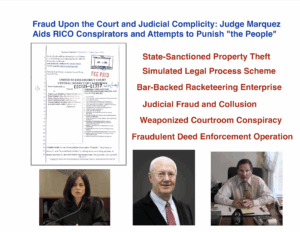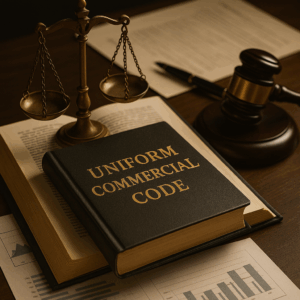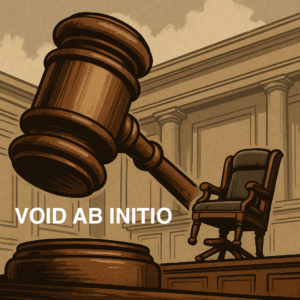The concept of citizenship in the United States is more complex than commonly understood. Legal precedents and statutory definitions reveal a critical distinction between a “state Citizen” (also referred to as a “national”) and a “citizen of the United States.” This article explores this distinction, highlighting key legal authorities, statutory provisions, and judicial opinions to clarify the implications for individuals seeking to understand their legal status and rights
Historical and Judicial Clarifications on Dual Citizenship
The distinction between state and federal citizenship was firmly established in the aftermath of the Civil War. Prior to the adoption of the Fourteenth Amendment, there was no such thing as a “citizen of the United States” independent of state citizenship. The Supreme Court, in United States v. Anthony (1873), articulated this historical understanding:
“No mode existed, it was said, of obtaining a citizenship of the United States, except by first becoming a citizen of some state.”
However, the Fourteenth Amendment fundamentally changed this dynamic by defining federal citizenship:
“All persons born or naturalized in the United States, and subject to the jurisdiction thereof, are citizens of the United States and of the state wherein they reside.” (U.S. Const. Amend. XIV)
The courts have since acknowledged that these two types of citizenship are distinct and confer different rights and obligations. The Slaughter-House Cases (83 U.S. 36, 1872) emphasized this distinction:
“It is quite clear, then, that there is a citizenship of the United States and a citizenship of a State, which are distinct from each other and which depend upon different characteristics or circumstances in the individual.”
Further reinforcing this concept, the court in Crosse v. Board of Supervisors of Elections (1966) noted:
“Both before and after the Fourteenth Amendment to the federal Constitution, it has not been necessary for a person to be a citizen of the United States in order to be a citizen of his state.”
Statutory Definitions of National and Citizenship Status
Under the Immigration and Nationality Act (INA), the definition of a “national” underscores allegiance to a state rather than federal jurisdiction. Title 8 U.S. Code § 1101(a)(21) defines a “national” as:
“A person owing permanent allegiance to a state.”
Title 8 U.S. Code § 1101(a)(22) further elaborates:
“The term ‘national of the United States’ means (A) a citizen of the United States, or (B) a person who, though not a citizen of the United States, owes permanent allegiance to the United States.”
This distinction is critical because it acknowledges that not all nationals are “citizens of the United States.” The Department of State reinforces this understanding in its guidance on “Certificates of Non-Citizen Nationality,” stating:
“Section 101(a)(21) of the INA defines the term ‘national’ as ‘a person owing permanent allegiance to a state.’”
Moreover, the federal regulations governing passports (22 CFR § 51.2) specify that passports are issued only to U.S. nationals, not exclusively to U.S. citizens.
Judicial Acknowledgment of Non-Citizen Nationals and State Citizenship
Numerous cases have recognized that an individual can be a citizen of a state without being a citizen of the United States. In Thomasson v. State (15 Ind. 449) and McDonel v. State (90 Ind. 320, 323), the courts observed:
“One may be a citizen of a State and yet not a citizen of the United States.”
Additionally, Jones v. Temmer (829 F.Supp. 1226, 1993) clarified that the privileges and immunities protected under the Fourteenth Amendment are limited to federal rights:
“The privileges and immunities clause of the Fourteenth Amendment protects very few rights because it neither incorporates any of the Bill of Rights nor protects all rights of individual citizens. See Slaughter-House Cases, 83 U.S. (16 Wall.) 36, 21 L.Ed. 394 (1873). Instead, this provision protects only those rights peculiar to being a citizen of the federal government; it does not protect those rights which relate to state citizenship.” — [Jones v. Temmer, 829 F.Supp. 1226 (USDC/DCO 1993)]
“The fourteenth amendment creates and defines citizenship of the United States. It had long been contended, and had been held by many learned authorities, and had never been judicially decided to the contrary, that there was no such thing as a citizen of the United States, except as that condition arose from citizenship of some state. No mode existed, it was said, of obtaining a citizenship of the United States, except by first becoming a citizen of some state. This question is now at rest. The fourteenth amendment defines and declares who shall be citizens of the United States, to wit, “all persons born or naturalized in the United States, and subject to the jurisdiction thereof.” The latter qualification was intended to exclude the children of foreign representatives and the like. With this qualification, every person born in the United States or naturalized is declared to be a citizen of the United States and of the state wherein he resides.”— UNITED STATES V. ANTHONY. [11 Blatchf. 200; 5 Chi. Leg. News. 462, 493; 17 Int. Rev. Rec. 197; 30 Leg. Int. 266; 5 Leg. Op. 63; 20 Pittsb. Leg. J. 199.] Circuit Court, N. D. New York. June 18, 1873.
“It is quite clear, then, that there is a citizenship of the United States** and a citizenship of a State, which are distinct from each other and which depend upon different characteristics or circumstances in the individual.”— Slaughter House Cases, 83 U.S. 36 (1872)
“That there is a citizenship of the United States and a citizenship of a state, and the privileges and immunities of one are not the same as the other is well established by the decisions of the courts of this country.”— [Tashiro v. Jordan, 201 Cal. 236 (1927)]
”The first clause of the fourteenth amendment of the federal Constitution made negroes citizens of the United States**, and citizens of the state in which they reside, and thereby created two classes of citizens, one of the United States** and the other of the state.”— [4 Dec. Dig. ’06, p. 1197, sec. 11][“Citizens” (1906), emphasis added]
“… both before and after the Fourteenth Amendment to the federal Constitution, it has not been necessary for a person to be a citizen of the United States in order to be a citizen of his state.”— [Crosse v. Board of Supervisors of Elections] [221 A.2d 431 (1966)]
Legal Implications and the Role of Allegiance
The legal implications of this distinction are profound. A national or state Citizen holds rights and obligations distinct from those of a “citizen of the United States.” As highlighted in Title 18 U.S. Code § 112, nationals of the United States can be categorized alongside foreign officials and internationally protected persons, suggesting a nuanced legal status.
The overarching theme is that state Citizenship predates and operates independently of federal citizenship. The acknowledgment of nationals who owe allegiance to a state underscores the enduring sovereignty of states within the U.S. federal system.
Conclusion: Understanding and Asserting State Citizenship
The legal framework around citizenship highlights the importance of understanding one’s status within the federal and state systems. A “state Citizen” or “national” is a legal designation that carries distinct rights and responsibilities from those of a “citizen of the United States.” As demonstrated by judicial precedent and statutory definitions, individuals must be aware of these distinctions to fully understand and assert their legal rights.
This exploration underscores the need for continued awareness and education about citizenship, allegiance, and the legal implications of one’s status within the United States’ dual system of government.




